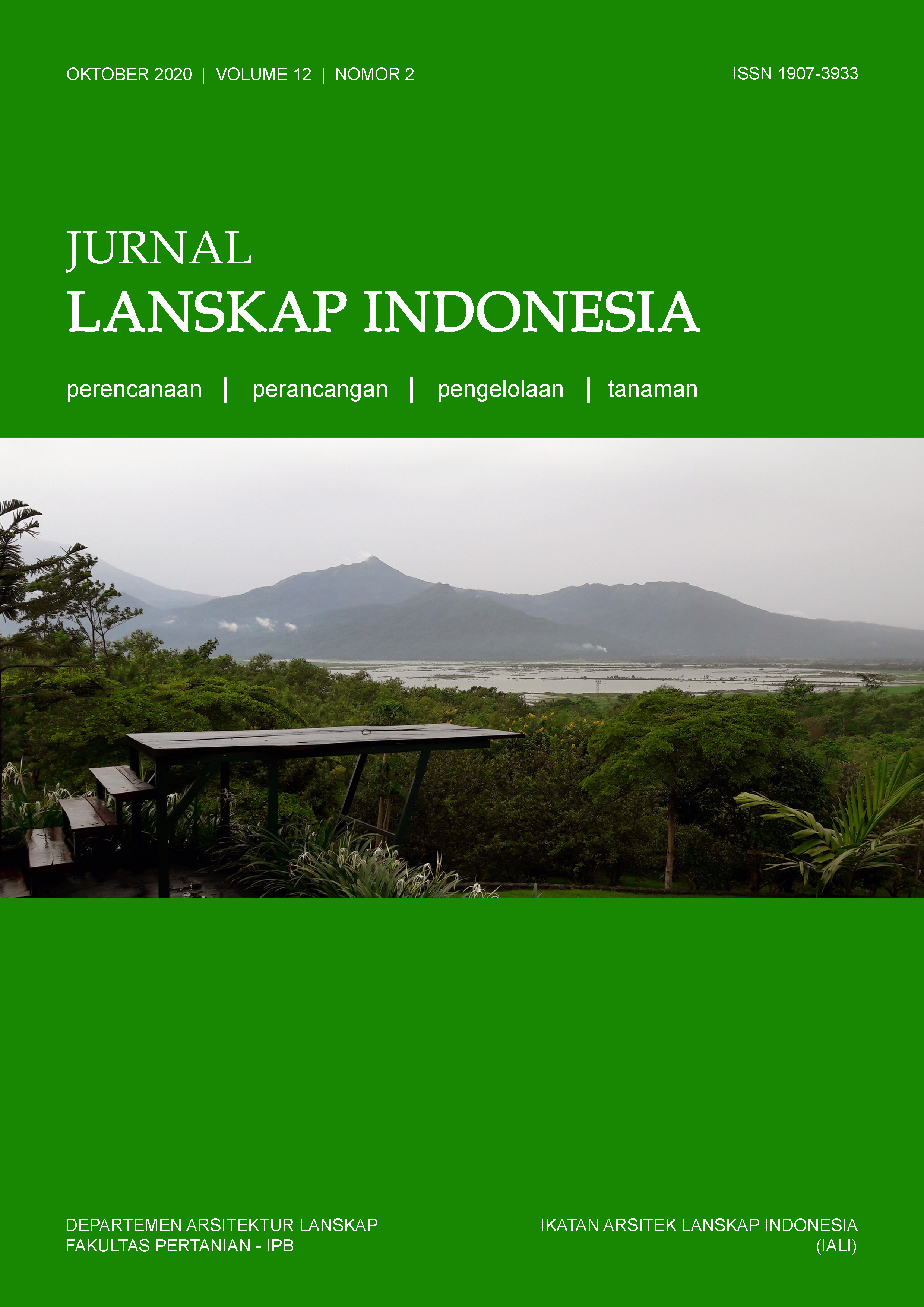Produksi Ruang Terbuka Hijau Publik Taman Terpadu dan Respon Warga di Taman Kelurahan Pondok Jaya, Kota Depok
Abstract
Horizontal Urban Expansions Model significantly contributes to land transformation and affects multiple problems including environtmental damage. Ideally it must be balanced by Urban Green Space supply for sustainability and liveabilty of a City. Society aspect become apart of sustainability’s domain and human factors will be considered through perception. In order to implement as mandatory of Law of Republic of Indonesia no 26/2007 Concerning Spatial Management, local government needs to basically establish local regulation on how to carry it out. The Depok City Government Public Space Regulation has already been arranged through Depok City’s Mission (2016-2021) which Increase the quality of the public services, and building infrastructure and open space including Mayor’s Promise to build urban park in 63 of Depok’s urban village. Since it was on first year, there were disagreement where the inhabitants refused park development around them. This study wants to find out the factors influencing inhabitant’s response to Pondok Jaya Urban Village Park Development. The research is using qualitative method with Case Study and an in-depth interview, analyzing qualitative data by open coding, axial coding and selective coding analysis. The research’s result revealed three category of inhabitant’s response who has different causal factors, they are Strongly Agree (precedent, physical & social benefit), Somewhat Agree (priviledges, maintenance & concept planning) and Strongly Disagree (Intervnetion, Development Process, Existing Condition & authority-function changes). This study may gain knowledge and understanding the way to better formulation of next Depok’s public green space regulation.
Downloads
This journal permits and encourages authors to post items submitted to the journal on personal websites or institutional repositories both prior to and after publication, while providing bibliographic details that credit, if applicable, its publication in this journal. However, after the article is submitted and published in this journal, it is fully copyrighted by the Jurnal Lanskap Indonesia or JLI. If excerpts from other copyrighted works are included, the author must obtain written permission from the copyright owner and give credit to the source in the article. Then, the writer or reader is allowed to copy, share, and redistribute articles/material in any form. But it must still include the appropriate source and credit because the article in this journal is licensed by Creative Commons Attribution 4.0 International License (CC BY 4.0).
I. Proposed Policy for Journals That Offer Open Access
Authors who publish with this journal agree to the following terms:
- Authors retain copyright and grant the journal right of first publication with the work simultaneously licensed under a Creative Commons Attribution License that allows others to share the work with an acknowledgement of the work's authorship and initial publication in this journal.
- Authors are able to enter into separate, additional contractual arrangements for the non-exclusive distribution of the journal's published version of the work (e.g., post it to an institutional repository or publish it in a book), with an acknowledgement of its initial publication in this journal.
- Authors are permitted and encouraged to post their work online (e.g., in institutional repositories or on their website) prior to and during the submission process, as it can lead to productive exchanges, as well as earlier and greater citation of published work (See The Effect of Open Access).
II. Proposed Policy for Journals That Offer Delayed Open Access
Authors who publish with this journal agree to the following terms:
- Authors retain copyright and grant the journal right of first publication, with the work after publication simultaneously licensed under a Creative Commons Attribution License that allows others to share the work with an acknowledgement of the work's authorship and initial publication in this journal.
- Authors are able to enter into separate, additional contractual arrangements for the non-exclusive distribution of the journal's published version of the work (e.g., post it to an institutional repository or publish it in a book), with an acknowledgement of its initial publication in this journal.
- Authors are permitted and encouraged to post their work online (e.g., in institutional repositories or on their website) prior to and during the submission process, as it can lead to productive exchanges, as well as earlier and greater citation of published work (See The Effect of Open Access).



























